-
Posts
8,434 -
Joined
-
Days Won
771
Content Type
Profiles
Forums
Events
Everything posted by ummtaalib
-
Water network destroyed in Al-Jawaya village Eye On Palestine on Instagram: "🇵🇸#Palestine || The Israeli occupation forces destroyed the water network in Al-Jawaya village, east of Yatta this morning. The Israeli…" The Israeli occupation forces destroyed the water network in Al-Jawaya village, east of Yatta this morning.The Israeli government relies on trying to cut off and destroy the basic necessities of life, the most important is water, as the residents of southern Hebron need water more, especially during the summer season.The occupation is following all these apatahied processes to force the people leave the land and give it to the settlers who are attacking the people by unbelievable way recently. [ Via Alliance For Human Rights]
-
UPDATE The agreement to leave the Givat Eviatar settlement will still allow a Jewish religious seminary to be constructed in some months' time, according to reports - source
-
Eye On Palestine on Instagram: "🇵🇸#Palestine || This morning, the occupation forces have changed the location of the concrete cubes from the main entrance of Sheikh Jarrah…"
-
-
Why the UK needs to challenge Israel's annexation of the West Bank Once again, the Israeli authorities are demonstrating their complete disregard for international law. The UK government has condemned Israel's plans to illegally annex parts of the occupied West Bank, but it needs to urgently match fine words with effective actions: at a minimum, it should ban Israeli settlement goods from UK markets and prevent UK companies from operating in the settlements. Read more at Amnesty International This was posted in July 2020. Incidents have escalated since then...
-
Israeli police used 'ruthless excessive force' against Palestinian protesters - new research Amnesty International Posted 24 Jun 2021, 3:51pm ‘Discriminatory crackdown’ allowed Jewish supremacists to freely organise their own violent demonstrations ‘Tonight we are not Jews, we are Nazis’ - Jewish supremacists circulated extremist social media messages to organise attacks on Palestinians ‘This discriminatory crackdown was orchestrated as an act of retaliation and intimidation to crush pro-Palestinian demonstrations’ - Saleh Higazi Israeli police committed a catalogue of violations against Palestinians in Israel and occupied East Jerusalem - including using unlawful force against peaceful protesters, sweeping mass arrests, and subjecting detainees to torture and other ill-treatment - during and after recent armed hostilities in Israel and Gaza, Amnesty International said today. Amnesty researchers spoke to numerous witnesses and Amnesty’s Crisis Evidence Lab verified 45 videos and other forms of digital media to document more than 20 cases of Israeli police violations between 9 May and 12 June. Hundreds of Palestinians were injured in the crackdown and a 17-year-old boy was shot dead. Read more...
-
Gaza under Attack Isr*eli warplanes struck several locations across the Gaza strip tonight, breaching the ceasefire for the fourth time.Local sources said Isr*eli strikes shook Bader and Al Sudaniyyah in the besieged strip.Isr*eli media reported that the Isr*eli army bombarded targets in Gaza in response to incendiary balloons fired from Gaza. The balloons, as the Isr*eli army claimed, caused fire in settlements surrounding Gaza.Multiple isr*eli air strikes hit north-west Gaza: early reports say one Pal-estinian person is killed & one injured . Our Voice Matters (@our.voicematters) • Instagram photos and videos
-
Stories from Gaza LET’S TALK PALESTINE (@letstalkpalestine) • Instagram photos and videos
-
-
Troublespots in Marriage & other Relationships Life is not a bed of roses. We have been told we will be tested and tests often come in the form of relationships being hit with trouble. Sometimes the problems are perpetual and sometimes, solveable. The perpetual problems never get solved and we have to cope with them because we cannot change others. With wisdom we can try to make the best of the situation and with Allah’s favour it can improve. In the solvable problems we can reach out and try to solve the problem. We face challenging situations in life but then Allah ta’ala told us He will put us in these situations so we should recognise these tests and accept them. Accepting them makes it easier on the heart because it is not personal any more i.e. we will recognise it’s a test from Allah ta’ala and not personal hurt from someone. Tests are hard as that is what tests are otherwise, they would not be tests. With a growth mindset we can overcome them. We can choose how we deal with it. Our Deen teaches us our responsibilities and we are accountable for what we choose to do i.e. if you yell, you choose to do so. Even if he made you angry (which is natural), you can control the anger and not yell. Expressing it negatively is your choice. What we do influences others as well so we are accountable for that too. Allah ta’ala mentions in the Qur’an that he will not burden us more than what we can bear (Qur’an 2:286) and at the same time if we still mess up after having good intentions, we will still be rewarded as long as effort has been made. Allah ta’ala also mentions that He will not change the condition of people until they first change that which is in their hearts (Qur’an 13:11) so when we change the condition of our hearts, Allah ta’ala will change the condition of our situation. Allah ta’ala did not say everything will remain the same so we should not have that expectation. He is watching and seeing how His servants are going to deal with the situation He has put them in. When we accept our new reality and there is effort on our part, He will help us. Therefore, acknowledge the difficulty and your limitations. Let go of the previous reality and embrace the new one. Don’t get fixated on the Dunya and on expectations. Marriage, children, wealth, health, etc. will be according to what Allah ta’ala has destined for each of us. Remember that what is written for us WILL come to us. We have suffocated and restricted ourselves due to our expectations and setting up fake boundaries. Relationships are tests and that is why there are rules in our Deen. We are taught to be good to the creation. We have to learn to communicate better by being better listeners instead of being on the defensive. This leads to compromises and solutions.Therefore, in all circumstances, we should make effort and this is Ihsaan and we have to become الْوَاصِلُ - the secure connectors.
-
الْوَاصِلُ- The secure connector Nabi sallallaahu ‘alayhi wasallam said, “Al-Waasil is not the one who recompenses the good done to him by his relatives (i.e. doing salaam, giving gifts, being nice to each other), but Al-Waasil is the one who keeps good relations with those relatives who had severed the bond of kinship with him.” [Bukhari] This Hadith is regarding the beautiful quality our Nabi sallallaahu ‘alayhi wasallam wanted us to have; that of being a Waasil, one who maintain ties with those who severe them. It is hard, but do-able and brings a lot of Barakah in the marriage, home and in all relationships. Psychologists call the Waasil a “Secure connector” We can be of the secure connectors. It requires reflection, i.e. why is this person behaving in this manner, and it requires self-reflection, i.e. why am I behaving in this manner? A Waasil is a balanced person who sees the weakness in his/her own self and in others without putting others down (meaning the Waasil will explain the other person’s behaviour to himself). Why and how is a Waasil able to do this? By practicing self-care both physically (by getting exercise, enough sleep, etc.) and spiritually (through ‘Ibaadah). This is a very important concept as one cannot be patient and help others in their relationships without drawing from Dhikr. When something breaks, it takes effort to fix. We find out the materials of the thing that is broken and Google to find out how best to fix it. When relationships break, we need to fix it and not let it fester. Keeping connections with those who severe ties is much more difficult than returning the good done to us. Activity: crumple up a piece of paper and tightly screw it up into a ball. Then unfold it and try to smooth away the creases. The paper will not be the same even if the creases are ironed out, the paper will tear at the creases. If this is done repeatedly, the paper will be useless. Similarly, a relationship becomes irretrievable if hurt is caused repeatedly. Spoken words are powerful. They have the power to heal, save or destroy a relationship. It is therefore very important to be mindful of one’s speech. We should be gentle with people when interacting because we do not know the major part of any person’s life and personality. According to psychologists, each person’s childhood experiences have a tremendous impact on a person which continues throughout life. It forms the roots of who they are and how they react in situations, how they respond to others and how they express love. We should restrain words and choose them carefully only when the heart is in a good place i.e. there is no negative feelings in the heart like pride, jealousy, envy, anger, resentment, etc. Make Intention to become الْوَاصِلُ
-
Emotional Intelligence is the ability to be self-aware of one’s own emotions as well as the emotions of others (empathy) while being able to control and manage one’s own emotions. EI has three components: · Self-awareness · Self-management When one is aware of, understands and acknowledge one’s emotions, then one can manage them better. We need to know what we are feeling and why we are feeling this way in order to figure out the best way to react. · Empathy Empathy is the ability to be aware of the emotions of others and understand from their perspective. When we study the Seerah and Hadith we see that the Prophet sallallaahu ‘alayhi wasallam was an extremely emotionally intelligent person. There are lessons for us in becoming emotionally intelligent people in the way he understood his own emotions, acknowledged and managed them and the way he interacted with everyone around him, teaching them to be emotionally intelligent people. The personality of the Prophet sallallaahu ‘alayhi wasallam was such that every person felt he/she was the most beloved to him. ‘Amr ibn Al-‘As RA reported, I said, “Which person is most beloved to you?” The Prophet sallallaahu ‘alayhi wasallam, said, “Aisha.” I said, “I mean among men.” The Prophet sallallaahu ‘alayhi wasallam said, “Her father.” I said, “Then who?” The Prophet sallallaahu ‘alayhi wasallam said, “Umar ibn al-Khattab,” and he mentioned some other men. [Bukhari] He felt such love from the Prophet sallallaahu ‘alayhi wasallam he thought he would be high on the list. If we do not have this in our life then we can at least make others feel loved. “The one who severs his family ties will not enter Paradise.” [Bukhari Muslim] “Verily, the believers are like a structure, each part strengthening the other,” and the Prophet clasped his fingers together. [Bukhari Muslim] “The parable of the believers in their affection, mercy, and compassion for each other is that of a body. When any limb aches, the whole body reacts with sleeplessness and fever.” [Bukhari Muslim] There are many more Hadith that can be quoted. To summarise, it is that quality which enables us to confront situations and problems with patience, understanding and insight (delving deeper into why a person is behaving in a certain manner). It is not something one is born with. It has to be learnt and for us, our Nabi sallallaahu ‘alayhi wasallam who was an extremely emotionally intelligent person, is our role model. It is important to be an emotionally intelligent person to save our relationships. We should be gentle with people when interacting because we do not know the major part of any person’s life and personality. How they were brought up by their parents, how their friends made them feel, how their teachers spoke to them, etc. defines a person. The Prophet sallallaahu ‘alayhi wasallam said to Aisha RA, “O Aisha, Allah is gentle and He loves gentleness. He rewards for gentleness what is not granted for harshness and He does not reward anything else like it.” [Muslim] “Every good deed is charity. Verily, it is a good deed to meet your brother with a cheerful face, and to pour what is left from your bucket into the vessel of your brother.” [Tirmidhi] Therefore, we should treat people gently.
-
The Occupation of Water Amnesty International The legacy of Israel’s 50-year occupation of the Palestinian territories has been systematic human rights violations on a mass scale. One of its most devastating consequences is the impact of Israel’s discriminatory policies on Palestinians’ access to adequate supplies of clean and safe water. Soon after Israel occupied the West Bank, including East Jerusalem, and the Gaza Strip, in June 1967, the Israeli military authorities consolidated complete power over all water resources and water-related infrastructure in the Occupied Palestinian Territories (OPT). 50 years on, Israel continues to control and restrict Palestinian access to water in the OPT to a level which neither meets their needs nor constitutes a fair distribution of shared water resources. In November 1967 the Israeli authorities issued Military Order 158, which stated that Palestinians could not construct any new water installation without first obtaining a permit from the Israeli army. Since then, the extraction of water from any new source or the development of any new water infrastructure would require permits from Israel, which are near impossible to obtain. Palestinians living under Israel’s military occupation continue to suffer the devastating consequences of this order until today. They are unable to drill new water wells, install pumps or deepen existing wells, in addition to being denied access to the Jordan River and fresh water springs. Israel even controls the collection of rain water throughout most of the West Bank, and rainwater harvesting cisterns owned by Palestinian communities are often destroyed by the Israeli army. As a result, some 180 Palestinian communities in rural areas in the occupied West Bank have no access to running water, according to OCHA. Even in towns and villages which are connected to the water network, the taps often run dry. While restricting Palestinian access to water, Israel has effectively developed its own water infrastructure and water network in the West Bank for the use of its own citizens in Israel and in the settlements - that are illegal under international law. The Israeli state-owned water company Mekorot has systematically sunk wells and tapped springs in the occupied West Bank to supply its population, including those living in illegal settlements with water for domestic, agricultural and industrial purposes. While Mekorot sells some water to Palestinian water utilities, the amount is determined by the Israeli authorities. As a result of continuous restrictions, many Palestinian communities in the West Bank have no choice but to purchase water brought in by trucks at a much high prices ranging from 4 to 10 USD per cubic metre. In some of the poorest communities, water expenses can, at times, make up half of a family’s monthly income. The Israeli authorities also restrict Palestinians’ access to water by denying or restricting their access to large parts of the West Bank. Many parts of the West Bank have been declared “closed military areas”, which Palestinians may not enter, because they are close to Israeli settlements, close to roads used by Israeli settlers, used for Israeli military training or protected nature reserves. Israeli settlers living alongside Palestinians in the West Bank – in some cases just a few hundred meters away - face no such restrictions and water shortages, and can enjoy and capitalize on well-irrigated farmlands and swimming pools. In Gaza, some 90-95 per cent of the water supply is contaminated and unfit for human consumption. Israel does not allow water to be transferred from the West Bank to Gaza, and Gaza’s only fresh water resource, the Coastal Aquifer, is insufficient for the needs of the population and is being increasingly depleted by over-extraction and contaminated by sewage and seawater infiltration. The resulting disparity in access to water between Israelis and Palestinians is truly staggering. Water consumption by Israelis is at least four times that of Palestinians living in the OPT. Palestinians consume on average 73 litres of water a day per person, which is well below the World Health Organization’s (WHO) recommended daily minimum of 100 litres per capita. In many herding communities in the West Bank, the water consumption for thousands of Palestinians is as low as 20 litres per person a day, according to the United Nations Office for the Coordination of Humanitarian Affairs (OCHA). By contrast, an average Israeli consumes approximately 300 litres of water a day. 50 years on, it is time for the Israeli authorities to put an end to policies and practices which discriminate against Palestinians in the OPT and to address their desperate need for water security. The Israeli authorities must lift the restrictions currently in place which deny millions of Palestinians access to sufficient water to meet their personal and domestic needs as well as to enjoy their rights to water, food, health, work and an adequate standard of living. Devastating toll on communities in the Jordan valley In September 2017 Amnesty International researchers met with residents of the Jordan Valley and witnessed first-hand the catastrophic impact the water restrictions have had on people’s daily lives. Ihab Saleh, a squash and cucumber farmer living in Ein al-Beida, a Palestinian village of about 1,600 people located in the northern part of the West Bank, is one of hundreds of thousands of people whose lives and livelihoods have been destroyed by Israeli water restrictions. Over the past 25 years he has seen the local spring gradually dry up after the Israeli company Mekorot drilled two wells near the neighbouring Palestinian community of Bardala, to serve Mehola, an Israeli settlement. The amount of water the Israeli authorities allocate to the village has been decreasing over the years, he says, and has been fully cut off on numerous occasions. Despite an agreement to compensate the Palestinian villages of Bardala and Ein al-Beida, since the mid-1970s, Israel has significantly reduced the amount of water available to both communities. In addition to the farming villages, many Bedouin communities in the Jordan Valley face severe restrictions as a consequence of Israel’s control of Palestinian natural water resources. Often the land they live on is designated by Israel as a “closed military area”. Not only is their access to water limited, they also live under the constant threat of forced evictions through demolition orders on their homes and properties. Two families living beside highway 90 near the village of Ein Al-Beida have had their houses and property destroyed twice in the last two years. Most recently, in December 2016, the Israeli army destroyed two home structures and all of the water tanks belonging to the families. In al-Auja, a village of about 5,200 people, 10 kilometres north of Jericho in the Jordan Valley, the situation is much the same. In 1972, Mekorot sunk a well and established a pumping station, close to the Wadi Auja spring. According to residents, the spring used to provide a plentiful supply of water to the village and surrounding agricultural land via a series of irrigation channels. Due to water shortages, farmers in Al-Auja were forced to diversify from their traditional livelihoods, and now grow crops that are less water-intensive and also less profitable. While in the past they grew mainly citrus fruit and were capable of exporting them, they rely now on less water intensive vegetable crops such as zucchini, cucumber and squash, which can sustain a cultivation period of three to four months through the winter season. Many residents of Al-Auja have also been forced to find work in farms located in three neighbouring Israeli settlements, which have unrestricted access to water. Read more.... Israeli settlements’ access to water Swimming Pool in Ma’ale Adumim. With water supply roughly four times greater than that provided to Palestinian communities, Israeli settlements such as Ma'ale Adumim stand in stark contrast to their Palestinian neighbours. © Amnesty International An Israeli settlement date farm close to the village of Al-Auja, in the Jordan Valley, 21 September, 2017. Hundreds of millions of dollars’ worth of goods produced in Israeli settlements built on occupied Palestinian land are exported internationally each year, despite the fact that the vast majority of states have officially condemned the settlements as illegal under international law. © Amnesty International Lush vegetation in the Israeli settlement of Ma'ale Adumim. With a population of 37,670, the settlement is one of the largest in the Occupied Palestinian Territories. © Amnesty International The right to water has been recognized as being derived from the right to an adequate standard of living, and therefore implicitly contained in the International Covenant on Economic, Social and Cultural Rights and other instruments. The right to water includes availability of sufficient water for personal and domestic uses, physical access within or in the immediate vicinity of each household, affordability, and adequate quality of water. States must prioritize, as part of their immediate obligations, access for everyone to the minimum essential amount of water that is sufficient and safe for personal and domestic uses to prevent disease. States have to adopt the necessary measures directed towards the full realization of the right to water, including by taking positive measures to assist individuals and communities to enjoy the right. Under international law, Israel, as the occupying power in the OPT, has well defined responsibilities to respect the Palestinians’ human right to water. It must not only refrain from taking actions that violate this right or undermine the Palestinian population’s opportunity to realize the right, but also protect the Palestinian population from interference by third parties in their enjoyment of the right to water, and it must take deliberate, concrete and targeted steps to ensure that this right is fulfilled and fully realized.
-
Isra-eel does not just use physical force to expel Palestinians from their homes. For DECADES and until now, they use resources such as water to drive Palestinians out of their homes including the redirection of water from farmland to illegal settlements Mariam ~ مريم (@mimoaj90) • Instagram photos and videos
-
Love Style (Attachment Theory) According to psychologists, each person’s childhood experiences have a tremendous impact on a person which continues throughout life. It forms the roots of who they are and how they react in situations, how they respond to others and how they express love. It has been recognised that change is possible once it is understood why a person behaves as he/she does and for us as Muslim women, we know Allah ta’ala has given us the ability to choose who we are because we have been given the ability to change. What is Love Style? Milan Yerkovich (a pastoral counsellor) and Kay Yerkovich (licensed Marriage and Family Therapist) say people tend to fall into one of five categories called “Love Styles” which will help us understand the underlying factors and react accordingly, avoiding negativity and in this way help ourselves and others in our relationships. Note: This is not to make anyone feel sad or bad or to blame parents or carers for their childhood experiences, but to learn why we, and others, react the way we do in our relationships. It will also help us as parents, not to fall into these traps. What are the 5 Love Styles? The Pleaser Pleasers usually grow up in a home with a parent who is overly protective, angry, and/or critical. Pleaser children do everything they can to “be good” to get positive responses and avoid troubling their highly-reactive parent; they learn to spend their energy comforting or appeasing their parent, instead of receiving comfort themselves. They are uncomfortable with conflict. As adults, Pleasers tend to continually monitor the moods of those around them in an attempt to keep everyone happy and have a hard time saying no. However, this can lead to resentment, an emotion that can break down a relationship. In some cases, others may become aware of the condition of the Pleaser and take advantage leading to resentment and a toxic relationship. For the Pleaser to have a stable relationship, they have to learn to say no respectfully and give the reason why they cannot take a responsibility. The Victim This is where a child grows up in a chaotic home. Children survive a chaotic home environment by trying to “stay under the radar”, making themselves as invisible as possible. They’ll hide and appease, learning how to escape into their own heads to lessen the pain from their angry, violent, chaotic parents. Victims lack a sense of self-worth and are often anxious and depressed. Rather than engage, they’ll resort to just “going through the motions” in order to get by. Victims may emulate their childhood home environment by pursuing a relationship with a Controller. When children are involved in such a relationship, the Victim may even inflict their suppressed anger on their children whenever the Controller is not present. For the Victim to have a healthy relationship, he/she should have self-love and stand up for themselves and not let others walk over them. The Controller Controllers did not have a lot of love and need control to remove the feeling of being controlled in childhood. Having control means having protection from feelings like fear, humiliation. While control can be either highly rigid or sporadic and unpredictable, Controllers rarely realize the true reason they feel the need to be in charge. They do not ask for help and get things done themselves in a certain manner and get very angry if others do not follow that way. To have a healthy relationship, the Controller needs to let go and trust in Allah and have trust in others. They also need to keep anger at bay. The Vacillator Growing up with an unpredictable parent, Vacillators’ needs aren’t top priority. Without consistent parental affection they develop feelings of abandonment, and by the time the parent feels like giving again, their child is tired of waiting and too angry to receive. They feel very misunderstood and have internal conflicts with themselves. They are very sensitive and perceptive to others. To have a healthy relationship, Vacillators need to learn how to pace themselves and how to commit before getting hurt by their own expectations. As mothers we need to make sure our children are touched, cuddles, hugged. The Avoider Coming from homes that are often low in affection, but which place high value on independence and self-reliance, the Avoider grows up learning only to take care of themselves. To deal with the anxiety of having so little comfort and nurturing from their parents, they have learned to restrict their feelings and suppress their needs. As an adult, Avoiders can seem emotionally distant or detached. They feel uncomfortable around people who have intense emotions. To have a healthy relationship the Avoider should learn to open up express emotions. What is your love style? They have developed a free online quiz to help determine a person’s unique Love Style. Take the Quiz: https://howwelove.com/love-style-quiz/
-
We now know men and women are biologically and physiologically different and have varying behaviour and expectations as a result of different upbringing, how their parents’ relationships were and different cultures people live in. We are all human beings with unique personalities so how do we make our relationships work? One powerful tool we can use is learning about the love languages. We mistakenly think that everyone likes to be loved the way we like to be loved however, after many years of marriage counselling, Dr Gary Chapman’s conclusion is that people express and receive love in 5 different ways, called love languages: quality time, words of affirmation, gifts, acts of service, and physical touch. Thinking everyone likes to be loved the way we like to be loved leads to misunderstanding and feelings of resentment and tension. In a Hadith the Prophet sallallaahu ‘alayhi wasallam said, “Treat people according to their status.” This was in context of the following Haditg: A beggar asked ‘Aaishah (radiyallahu ‘anhaa) for charity and she gave him a piece of bread. Thereafter, one well-dressed person asked her for charity and she invited him to sit down and served him food. When she was asked about the reason for the difference in treatment, she said: “The Messenger of Allah (sallallaahu ‘alayhi wasallam) instructed us, ‘Treat people according to their status.’” This gist of this is that we should treat people differently (not unequally) based on what they need. Dr Chapman believes that, once you identify and learn to speak your spouse’s primary love language, you will have discovered the key to a long-lasting, loving marriage. Summary of Dr Chapman’s Conclusion Dr Chapman is convinced that keeping the emotional love tank full is as important to a marriage as maintaining the proper oil level is to an automobile. When your spouse’s emotional love tank is full and they feel secure in your love, the whole world looks bright and your spouse will move out to reach their highest potential in life. Words of Affirmation Some people like to hear words of praise and appreciation and are especially hurt by insults. Sometimes our words say one thing, but our tone of voice says another and this causes tension in the relationship. Verbal compliments or words of appreciation are powerful communicators of love and if this is the “love language” of your spouse (or any person) then using words of praise and appreciation will lead to a better relationship. ‘A’isha RA once asked Nabi sallallaahu ‘alayhi wasallam, “O God’s Messenger, how is your love for me?” “Like a strong binding knot,” he replied. ‘A’isha again asked, “How is the knot?” “Like the first day,” he replied. ‘Once Nabi sallallaahu ‘alayhi wasallam was sitting in a room with `Aisha RA and fixing his shoes. It was very warm, and `Aisha RA looked to his blessed forehead and noticed that there were beads of sweat on it. She became overwhelmed by the majesty of that sight and was staring at him long enough for him to notice. He said, “What’s the matter?” She replied, “If Abu Bukair Al-Huthali, the poet, saw you, he would know that his poem was written for you, Abu Bukair said that if you looked to the majesty of the moon, it twinkles and lights up the world for everyone to see.” So the Nabi sallallaahu ‘alayhi wasallam got up, walked to `Aisha RA, kissed her between the eyes, and said, “Wallahi yaa Aisha, you are like that to me and more” Gifts For some people receiving gifts is their “love language” because it shows the thought and effort that has gone into it. تَهَادُوا تَحَابُّوا - “Give each other gifts and you will love each other.” - Source: al-Adab al-Mufrad 594 Giving gifts creates love so give practical, thoughtful, useful gifts and not something which brings frowns. If Nabi sallallaahu ‘alayhi wasallam slaughtered a sheep, he would send meat to the friends of Khadijah RA as a present as much as would suffice them. So what must he have done while she was alive? Physical touch For some people physically touching, sitting close, cuddling, etc. is important and neglect of this causes them to be hurt. Quality time If your partner’s primary love language is quality time, your spouse simply wants you being with them, spending time with them. Spending time with your partner in a common pursuit communicates that you care about each other, that you enjoy being with each other, that you like to do things together. It also involves being a good listener. When Nabi sallallaahu ‘alayhi wasallam talked to someone he turned his entire body towards the other person giving his full attention to them. He shared quality time by giving undistracted, undivided attention. Unfortunately, we do not follow this Sunnah. Our attention is on other things like the phone messages while our loved ones are talking to us. Acts of Service For some people, love is being shown when little things are done for them. They get hurt when their partners are lazy with them or when commitments are broken. Conclusion Find out your own love language and that of other people around (spouse, siblings, parents, in laws, etc.) so that each person’s needs are fulfilled leading to better relationships. Don’t make the mistake of believing that the touch, gift, words, etc. that brings pleasure to you will also bring pleasure to your spouse or others in your relationships. Dr Chapman suggests three ways to discover your own primary love language: · What does your spouse do or fail to do that hurts you most deeply? The opposite of what hurts you most is probably your love language. · What have you most often requested of your spouse? The thing you have most often requested is likely the thing that would make you feel most loved. · In what way do you regularly express love to your spouse? Your method of expressing love may be an indication that that would also make you feel loved. Quiz For this a quiz make be taken here: https://www.5lovelanguages.com/quizzes/
-
Marriage is not about rights only, though the rights are there Nabi sallallaahu 'alayhiw asallam said, "All of you are guardians and are responsible for your wards. The ruler is a guardian and the man is a guardian of his family; the lady is a guardian and is responsible for her husband's house and his offspring; and so all of you are guardians and are responsible for your wards." (Bukhari) Mu’awiyah al-Qushayri reported, I said, “O Messenger of Allah, what are the rights of women over us?” The Messenger of Allah, peace and blessings be upon him, said, “That you feed them when you eat, you clothe them when you clothe yourself, you do not strike her face, and you do not rebuke her or boycott except inside the house.” Abu Dawood Theis Hadith sums up our responsibilities. All of us are given a circle (ward); for a teacher it is her students, for a shepherd, it is his sheep, etc. and each on is a guardian and responsible for his/her ward. In every relationship, we have a role and responsibilities. For a wife, her husband’s home and offspring are her primary responsibilities and now we know that our physical make up is designed to assist us in our role by the mercy from Allah ta’ala. Due to the enormous responsibility on a man’s shoulder of providing for his family, it is his right that his wife obeys him in all matters except where the Shari’ah says otherwise, that no one he disapproves of enters his home without his permission and that his wife has intimate relations with him, protecting his and her chastity and Imaan. The result will be a happy home filled with Sakeenah, Muwaddah and Rahmah and entry into Jannah through any gate she wishes. Abu Huraira RA reported, The Messenger of Allah, peace and blessings be upon him, said, “If a woman prays her five prayers, fasts her month of Ramadan, guards her chastity, and obeys her husband, she will enter Paradise from any gate she wishes.” Ṣaḥeeḥ Ibn Ḥibbān Therefore, a marriage (or any relationship) is not about demanding rights and scoring points. It is about having Taqwa, forgiveness and forbearance. It is two imperfect people trying perfectly to make a marriage or any relationship work. Without these components, Shaytaan will come into the relationship of two people.
-
Allah ta’ala sees men and women equally but made them different to each other and the responses given by men and women are based on their biology, chemistry and physiology and perhaps science has not gone far enough into these differences. It is when people do not understand others in their relationships, that it creates tension. The mistake people make is that they think, “He/she should have behaved this way because I think it is appropriate” or because “This is how I was brought up.” People expect others to be a certain way and when this happens in a marriage then it causes problems. Knowing and understanding why people respond the way they do will lead to being less resentful and judgmental and being more tolerant. Scientific research in the last 15 years has shown that men and women are not alike biologically. There is growing evidence that Oxytocin to Testosterone to Progesterone and even the brains of men and women are different. This does not mean one gender is better than the other. It means the differences are unique and critical in helping men and women understand each other. Oxytocin Oxytocin in the brain, acts as a chemical messenger and has an important role in many human behaviours. It has the power to regulate our emotional responses and pro-social behaviours, including trust, empathy, gazing, positive memories, processing of bonding cues, and positive communication Hugging, kissing, cuddling, and sexual intimacy can all trigger oxytocin production, which can strengthen bonds between adults, too. These effects have led oxytocin to be grouped with the other happy hormones — hormones known to have a positive impact on mood and emotions. In women Oxytocin helps in maintaining relationships because Oxytocin is known for the compassionate effect a person feels from it. When a woman hears her child cry, milk excretes from the breast and this is due to the Oxytocin. This is an involuntary reaction to the child’s cry. Imagine the Rahmah involved. She stops doing whatever she is doing and feeds her child. Women tend to be more patient and softer when they see their child crying. Thereafter when the woman cuddles, hugs, touches her child, more Oxytocin is excreted which helps in regulating other emotional responses which are more conducive to social behaviours i.e. they help in relationships. For women this hormone helps them to do what Allah ta’ala has given them the primary responsibility of, i.e. nurturing the family and for men it helps them do what they were made responsible of i.e. being Qawwaam. Mirror Neurons In our brains are Mirror neurons which allow us to learn through imitation (mirroring behaviours). They enable us to reflect body language, facial expressions, and emotions. Mirror neurons play an essential part in our social life. They are the key for child development, as well as relationships and education. Imitation has always been a powerful learning tool. The human brain is enabled with different mechanisms that allow us to imitate actions. Babies are capable of reproducing facial expressions, and as adults, we imitate basic behaviour. When we see a baby smile and we smile back. This is due to the mirror neurons. Similarly, if we see someone hurt, our facial expression will show the expression of being hurt yourself. Mirror neurons are responsible for yawning when we see someone else yawn and the way laughter can be contagious. It seems like we have the capacity to feel what others feel, empathize with them and understand their feelings. What happens in the brain for this to happen? The answer is mirror neurons. Testosterone Testosterone is excreted more in men than women. For men it helps build bone and muscle. It also helps in better verbal memory, mathematical reasoning and libido. Men tend to think logically and rationally and even appear to be rude in their approach while women solve problems in a different way. Men’s self-esteem is higher and they are more dominant which is why they do not like women to be controlling and being decision makers. Therefore, we should respect this part of their biology otherwise it will create problems. When a decision is necessary for the good of the family and our husband does not see it at the time, then there are ways we can go about it with wisdom. There can never be two principles or two prime ministers however the second in line also has a lot of responsibility. Nabi sallallaahu ‘alayhi wasallam was perfect in his role as husband, father, companion and guide to humanity and he had these manly characteristics and his Sunnah should be our role model. He showed mercy and compassion with family, companions and even the non-Muslims and his enemies with Oxytocin and we should find that balance.
-
Equality of judgment between men and women refers to being equal in the sight of Allah ta’ala however this often translates to “men and women are unequal”. Allah ta’ala is al-‘Aadil (The Just). He is just and expects us to be just. Men and women are different however, the differences between men and women does not affect judgment. If we do not acknowledge and understand the differences then we will constantly fall into the trap of trying to be equal in something that is not meant to be equal. No one will be wronged Allah says in Surah Nisaa'. verse 124, "But those who do good—whether male or female—and have faith will enter Paradise and will never be wronged ˹even as much as˺ the speck on a date stone" This verse shows there is total gender equality in terms of judgment of men and women. Many verses in the Qur’an encourage both men and women (ذَكَرٍ وَأُنثَىٰ) to do good deeds and both are mentioned in terms of the reward. Adam AS and Hawwa AS were judged equally from the beginning. Allah ta’ala decided for them according to the deed they committed and not their gender. By default, humans are distinguished among all of creation and then further distinguished according to their devotion to Allah ta’ala. Therefore, all humans are valuable in the sight of Allah ta’ala and honoured by their virtue. Those women who feel less than their husbands or any male, should feel confident in how Allah ta’ala created us and that He will judge men and women according to their virtue.
-
Other Relationships So far we have discussed marriage because it is one of the biggest backbone of society, the fabric which keeps communities together, what joins families and the objective is to expend family units. Islam promotes a collectivistic society with joint decisions on a family and even extended family level. Generally, in the West focus is more on the individual level though this was not so before. In the 1900’s when men went to war and women came out to world, they did not want to go back to their previous life after experiencing independence. Women’s movements appeared and society changed. The East however, is now rapidly changing and becoming an individualistic one like the West Research shows that people benefit more with extended family support. They suffer less depression, anxiety, etc. and there is also financial benefit. This is if there is more Deen and Deeni as well as secular education. People with Deeni education mind the boundaries and accommodate others. Identities don’t get blurred or damaged. Unfortunately, many people are not educated Deeni wise. So whether in the East or West, people need to be educated in Deen where Akhlaaq and Adab comes from. Islam promotes care of community and to make sacrifices for the greater good. This enables others giving support when needed. Unfortunately, in marriage and in other relationships, both sides take the individualistic approach and it’s all about “me” and when that happens, Akhlaaq disappears. It’s not about giving the bare bone rights, it’s about doing the best from our side because Islam teaches us Ihsaan. In laws In laws are our husband’s parents due to whom we are married to them. They may have different ways due to various reasons like they may have faced struggles of migration or colonisation or to get fed and educated. Therefore, they may be in survival mode. Have love and respect in the heart as they are Muslim and your elders. Think of them as the mum and dad of the man you love. Sometimes women are so good to others but not to in laws. Lean towards them and keep hearts clean. Do Mashwarah about household duties and share in the When women marry and move in with in laws, it is great change for both sides and adjustments are required on both sides. Daughters in law should have a loving, happy, joyful and “I’m going to try” approach even though it will be hard at first. She will have to make a new identity. And use her skills in the family dynamics. If a woman bonds with her in laws they can a great source of support. Faults can lie on both sides. Sometimes in laws expect a “maid” and sometimes daughters in law go in with a chip on their shoulders. If it gets toxic then it is wiser to move out however using wisdom, take it slowly, patiently and kindly. It will be hard but may increase love. If you cannot move out then bear your circumstances with patience. The husband if often stuck in the middle. He has to mediate and arbitrate and women should take their feelings into consideration.
-
Children It is their right that we provide them with is food, clothes according to need, shelter and love. Give them unconditional love. Love them no matter what they do. If you do that, they will know that what you do for them is not to manipulate them or emotionally blackmail them. It is because you love them. Be firm but kind. If they yell and curse it means we did not do our job. If they demand and yell in a shop, take them out and let them yell till they are finished then take them back in telling them they cannot behave in this manner Do not hit, insult or abuse children. Love them but do not let them take advantage. Children WILL mess up. Give them opportunity to make up as Allah ta’ala gives us opportunity to make Tawbah and make up again and again. By yelling and hitting we are teaching them to yell and hit. Take a nurturing attitude. Relax when nursing babies as emotions transfer to the baby. Let them connect to the Qur’an, Dhikr, etc. Calm parents raise calm children and anxious, depressed children raise anxious depressed children. Du’a for pious children: Surah Furqaan 74 رَبَّنَا هَبْ لَنَا مِنْ أَزْوَٰجِنَا وَذُرِّيَّـٰتِنَا قُرَّةَ أَعْيُنٍ وَٱجْعَلْنَا لِلْمُتَّقِينَ إِمَامًا "Our Rabb! Make our spouses and our children to be the comfort of our eyes, and make us leaders of the righteous."
-
Click on image to enlarge This week marked the start of the annual Palestinian olive harvest, an ancient tradition on which 80,000 families still rely for their livelihoods. Yet these families face growing economic hardship due to Israeli land confiscations, access restrictions, settler attacks, and not least the widespread uprooting, destruction and theft of the trees themselves.The infographic 'Uprooted' focuses on the staggering fact that Israeli authorities have uprooted over 800,000 Palestinian olive trees since 1967, the equivalent to razing all of the 24,000 trees in New York's central park 33 times. Click on image to enlarge
-
Ethnic Cleansing continuesThe Israeli occupation authorities forces the Jerusalemite Ezzat Zeyadah to demolish his home in the occupied city of Jerusalem. Eye On Palestine on Instagram: "🇵🇸#Palestine || Ethnic Cleansing .. The Israeli occupation authorities forces the Jerusalemite Ezzat Zeyadah to demolish his home in the…"
-
Great Alhamdulillah..as long the content is sourced it should be good


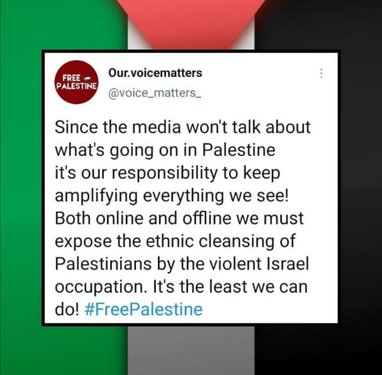
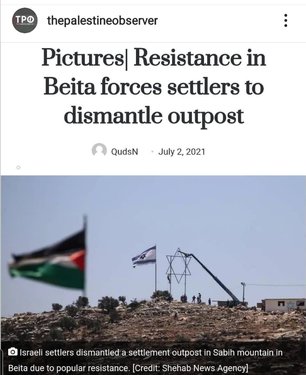

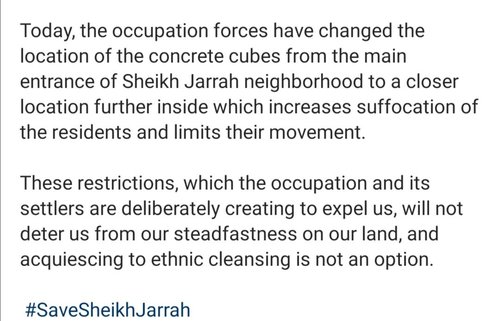

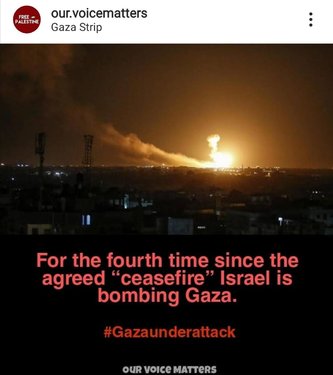
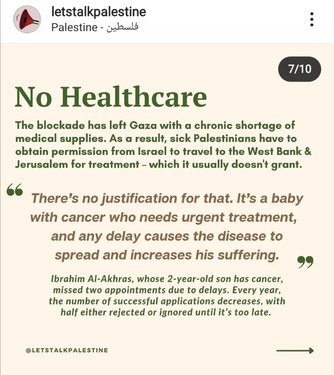
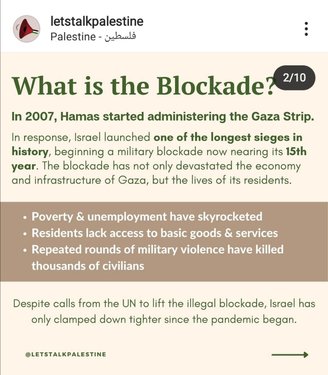
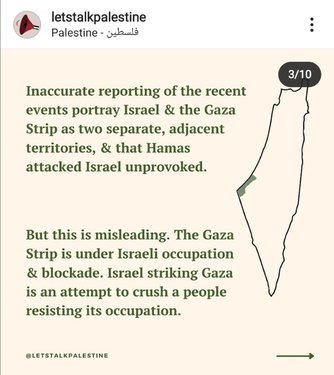
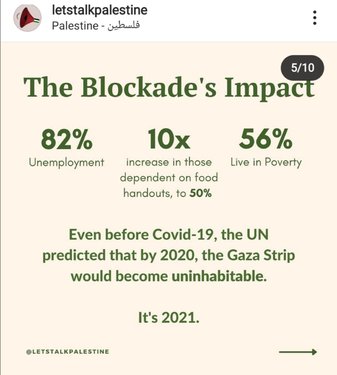
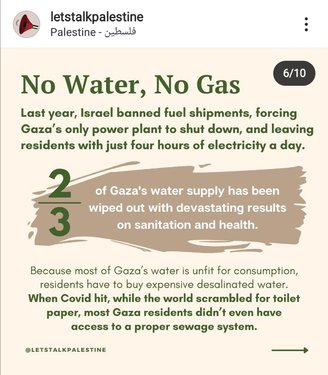
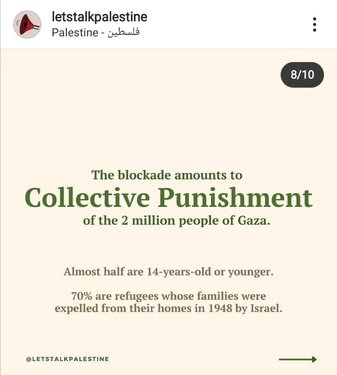
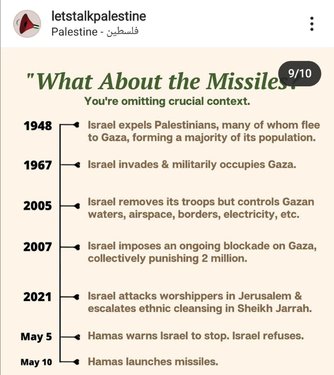
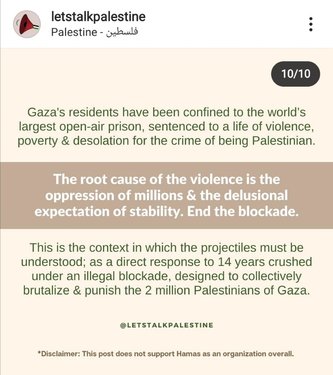
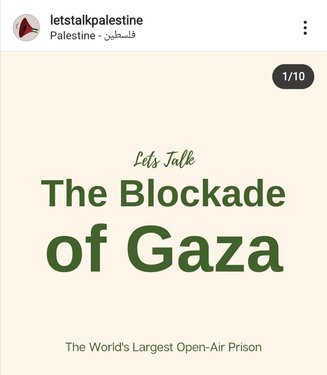
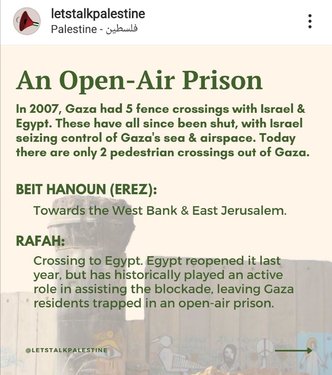
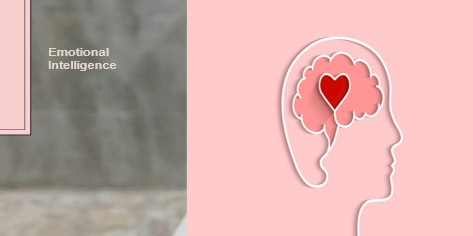
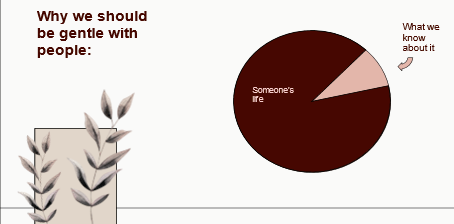
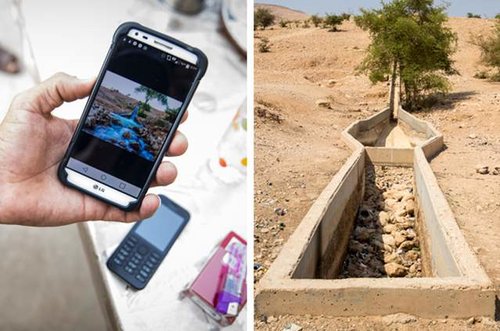
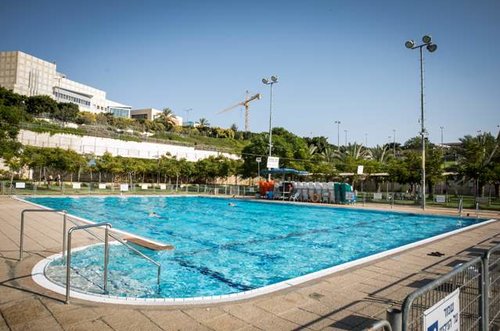
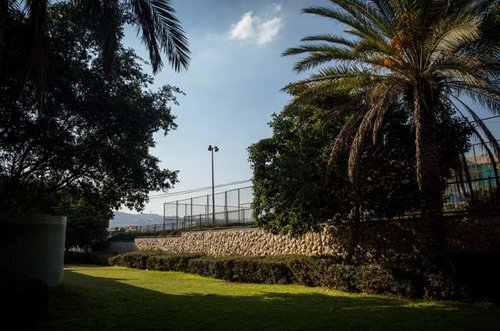
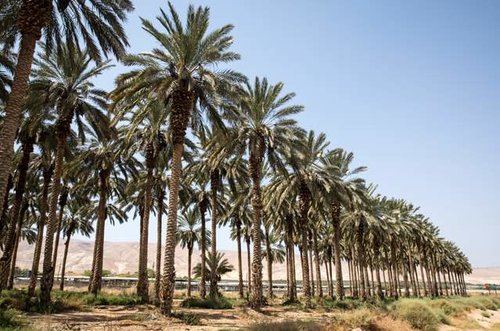
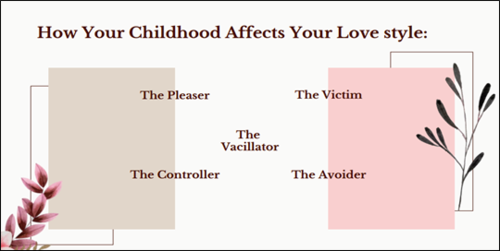
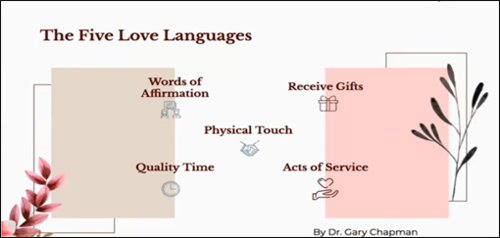
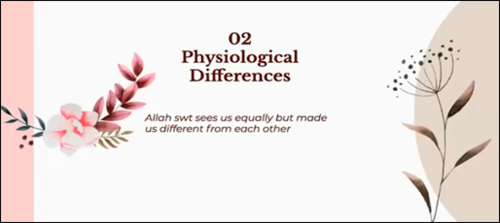
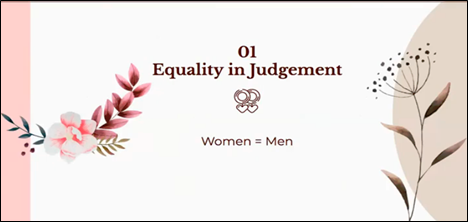
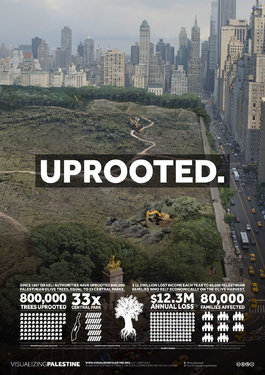
.thumb.jpg.6da183e13495367dc21fa0385fa4a520.jpg)
